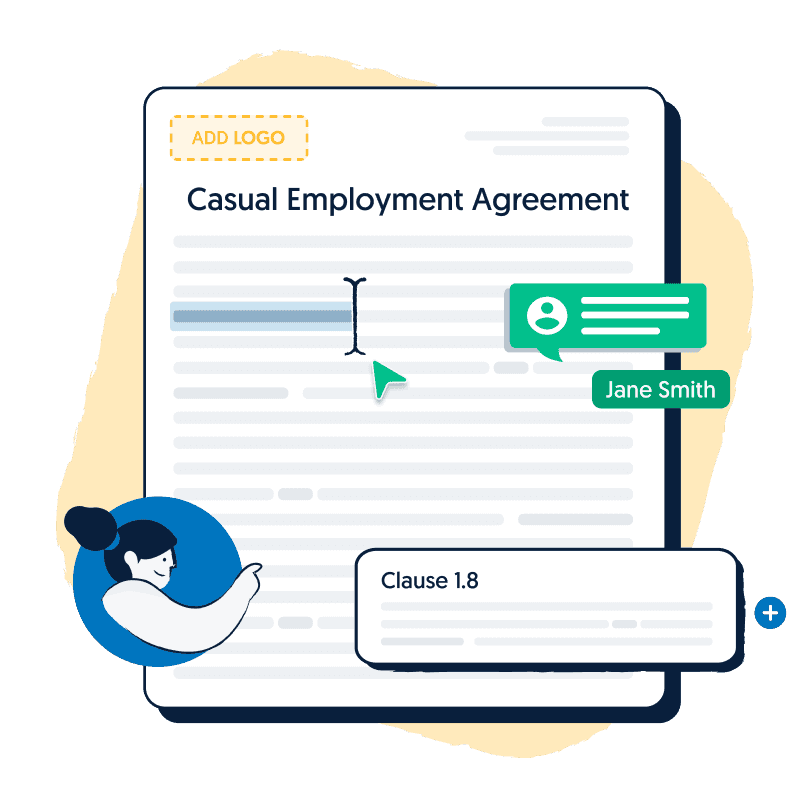Many employees are aware that full-time or part-time employees are eligible to bring an unfair dismissal claim. But can your casual employees make an unfair dismissal claim? In this article, we delve into the world of unfair dismissal to determine whether this cause of action is available for casual or non-permanent employees.
What is an Unfair Dismissal Claim?
Accordingly to the Fair Work Act 2009 (Cth), an employee can make an application for reinstatement or compensation if the termination of their employment was unfair. There are three elements that must be satisfied in order for an employee to successfully bring an unfair dismissal claim. These three elements are:
- The dismissal/termination must have been harsh, unjust or unreasonable,
- The dismissal must not be consistent with the Small Business Fair Dismissal Code (if the Code applies to the employment),
- The dismissal must not be a case of genuine redundancy.
However, even before an employee attempts to bring this type of claim, they must be eligible. An employee is eligible to bring an unfair dismissal claim if:
- The dismissed employee brings their claim no later than 21 days after the dismissal/termination took effect,
- The dismissed employee was employed for at least 6 months – the minimum qualification period.
Consequences of Unfair Dismissal
If you’re an employer, and your employee decides the bring an unfair dismissal claim against you, the employee may claim compensation for their unfair termination or reinstatement into their position. For more information on unfair dismissal in general follow this link.
Who is a Casual Employee?
A casual employee is a person who accepts a job offer from an employer knowing that there is no firm commitment for the employer to offer ongoing work. For instance, a casual employee may work on a roster that changes week by week. A casual employee can also refuse, swap or accept shifts at their convenience. In other words, there is no certainty of ongoing work if you are a casual employee.

Get your Casual Employment Agreement now for free.
Hire casual employees in any industry. This Employment Agreement (Casual) is essential when hiring new employees for your business.
Can Casual Employees make Unfair Dismissal Claims?
In short – yes, a casual employees can make unfair dismissal claims.
However, there are some important differences in the way a casual employees must bring their unfair dismissal claims. As noted above, a dismissed employee must prove they satisfy the minimum qualifying period. This means they must show that they have worked for a continuous and minimum period of 6 months. As discussed below, this is quite simple for permanent employees. However, difficulty can arise for casual employees.
Minimum Qualifying Period for Permanent Employees
In relation to permanent employees (full-time or part-time), the minimum qualifying period states that the employee must have worked for their employer, continually, for at least 6 months. For full-time or part-time employee this requirement is generally straight forward. The time period refers to the date they began their employment and ends on the date they were dismissed.
Minimum Qualifying Period for Casual Employees
In relation to casual employees, this minimum qualifying period is a bit tricker. This is because casual employees technically enter into a new employment contract every time they work. Therefore, they never really work on a continuous basis. However, there is a way around this continuous basis requirement! If a casual employee can prove the following two elements, they may satisfy this minimum qualifying period requirement:
- The casual worked on a regular and systemic basis and,
- They worked with a reasonable expectation of continuing employment.
Unfortunately, the Fair Work Act 2009 (Cth) does not address what a ‘regular and systemic basis’ is, however, we can find guidance through Australian case-law. Australian case-law explains that a casual who works a set amount of hours, on set days, with little variation, is most likely a regular and systemic employee. However, a casual who works a small amount of hours, with large and irregular gaps between rostered days, may not be a regular and systemic employee. It is important to remember that determining whether an employee works on a regular and systemic basis must be determined according to the specific circumstances of each case. If you are an employer, it is always best to speak to an Employment Lawyer.
Key Takeaways
It is important to know that as an employer, your casual employees can make unfair dismissal claims against you if they believe their termination was unfair, unjust and unreasonable. Although the general elements are the same, there are some differences in how a casual must prove they were employed on a continuous basis, for a minimum period of 6 months. Therefore, although it may be a bit more complicated for casual employees to bring unfair dismissal claims, it is still entirely possible.






